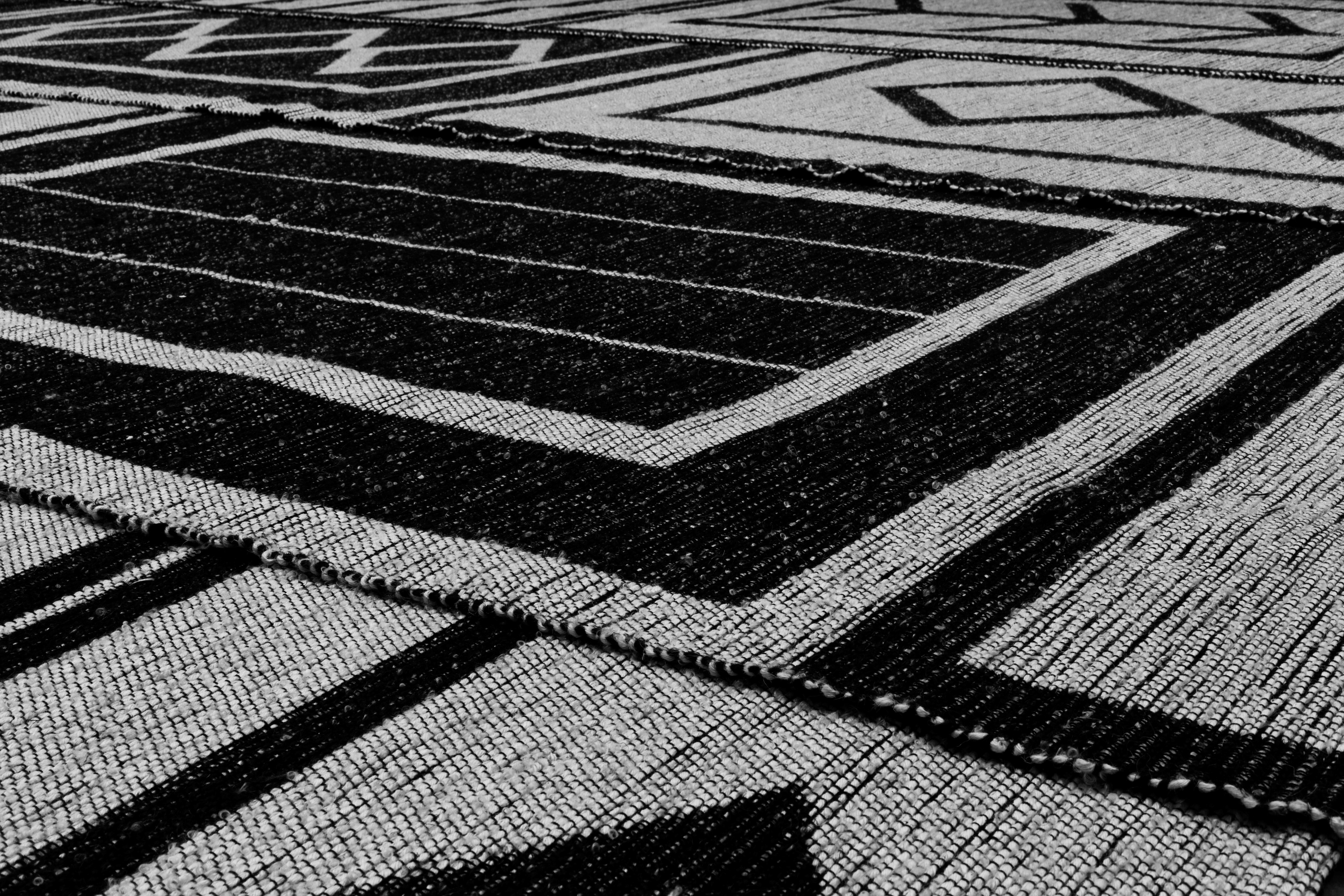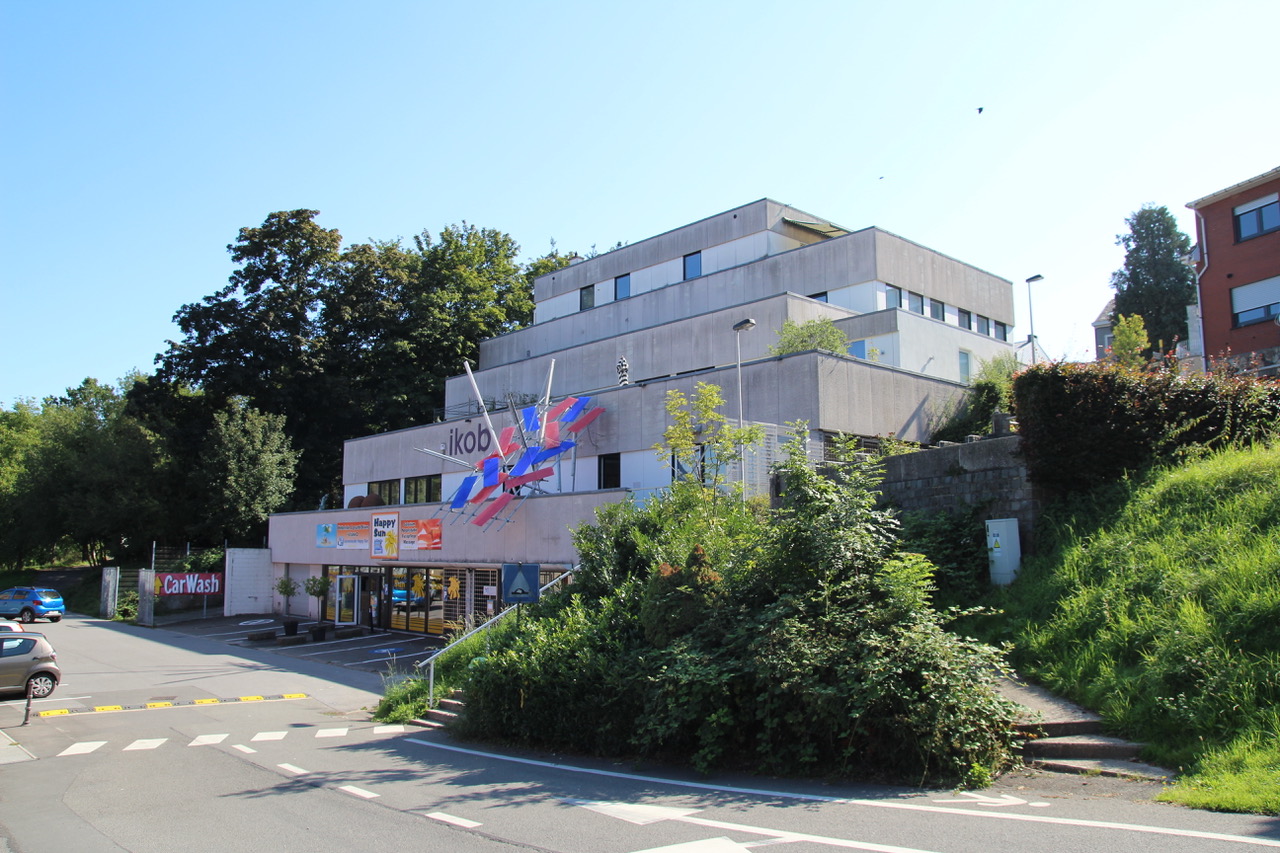AT SUNSET WE RETREAT ONCE AGAIN, UP THE HILL, TO WHERE WE CAN WATCH THE SKEINS OF WATER REFLECT COLOURS WE'VE NEVER SEEN BEFORE
Kristina Benjocki (b. 1984, lives and works in Amsterdam) studied at the University of Arts in Belgrade, Gerrit Rietveld Academie in Amsterdam, and Royal Academy of Art in The Hague. She has also been an artist-in-residence at the Jan van Eyck Academie in Maastricht. Benjocki’s work has been exhibited at the Stedelijk Museum in Amsterdam, Museum of Modern and Contemporary Art in Rijeka (Croatia), the American University of Beirut Art Gallery, and Izolyatsia in Kyiv. Besides her 2022 presentation at IKOB, she is preparing solo exhibitions at Museum of Contemporary Art Belgrade, Legat Čolaković and at the National Museum Zrenjanin. From 2019 until 2023 her practice is supported by the Mondriaan Fund.
© Kristina Benjocki
AT SUNSET WE RETREAT ONCE AGAIN, UP THE HILL, TO WHERE WE CAN WATCH THE SKEINS OF WATER REFLECT COLOURS WE’VE NEVER SEEN BEFORE
Kristina Benjocki’s work explores the political mechanisms of forgetting and remembering in the context of former Eastern and Western Europe, and materializes through installation, audio, textile and film. Engaging with the local history of the cloth industry in Eupen as well as her own biographical attachments to textile production, the exhibition at IKOB is a poetic interrogation of how textiles and the very practice of weaving intersect with technological progress, political histories, and the construction of cultural identity.
The central work of the exhibition is Tableaux VI-VII, La composition (2022), a new installation of large-scale, two-sided tapestries. Using her own loom to weave these rugs by hand, the artist reproduces knowledge and movements that have been employed, mostly by women, since ancient times. The patterns are based on a series of grid drawings for rugs woven in the Pirot kilim tradition, manufactured in the artist’s home country of Serbia. They can be traced back to pre-Islamic Ottoman rule in the Balkans and were later used to construct a post-Communist national identity, pointing to how textiles are intimately intertwined with migration, trade, and political power.
Benjocki employs methods similar to those of an archaeologist, with a particular interest in the overlooked, the hidden, and the repressed. The story of human evolution often focuses on hard materials such as stone, bronze or iron. But without perishable materials woven with thread, produced mostly through women’s labour, civilization is unthinkable. Up to this day we depend on clothing, furnishings, and fabric of all kinds to survive and function. Following the threads that coil and twist themselves through history, Benjocki’s work complicates the frequently subordinated position of textiles and urges us to take a closer look at how they are part of the very fabric of our lives.
Generously supported by the Embassy of the Kingdom of the Netherlands.
Kristina Benjocki (b. 1984, lives and works in Amsterdam) studied at the University of Arts in Belgrade, Gerrit Rietveld Academie in Amsterdam, and Royal Academy of Art in The Hague. She has also been an artist-in-residence at the Jan van Eyck Academie in Maastricht. Benjocki’s work has been exhibited at the Stedelijk Museum in Amsterdam, Museum of Modern and Contemporary Art in Rijeka (Croatia), the American University of Beirut Art Gallery, and Izolyatsia in Kyiv. Besides her 2022 presentation at IKOB, she is preparing solo exhibitions at Museum of Contemporary Art Belgrade, Legat Čolaković and at the National Museum Zrenjanin. From 2019 until 2023 her practice is supported by the Mondriaan Fund.
© Kristina Benjocki


